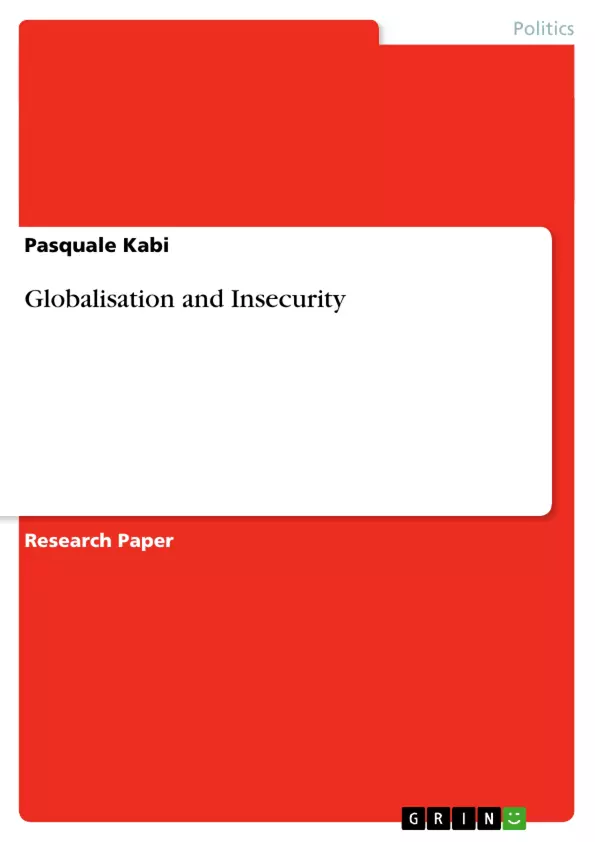Globalisation is a term that is contested in academia from the perspective of semantics, theory, history and characteristics. The fact of the matter is that the world is converging in a myriad of aspects not limited to economics, politics and society. Reading the daily financial news will give guidance to the possible outcomes to the current European debt crisis, so intertwined and interdependent is the state of the global economy. This article explores insecurity as enabled and facilitated by globalisation from the broad contexts of economy, technology and terrorism.
Inhaltsverzeichnis (Table of Contents)
- Introduction
- The globalised economy
- Technological Advancements
Zielsetzung und Themenschwerpunkte (Objectives and Key Themes)
This essay argues that globalization has contributed to growing insecurity in the international system. It examines the impact of globalization on the global economy, technological advancements, and the globalization of terrorism.
- The impact of globalization on economic security
- The role of technological advancements in driving globalization and insecurity
- The globalization of terrorism and its contribution to insecurity
- The redefinition of economic security in a globalized world
- The effects of economic insecurity on human security in developed and developing nations
Zusammenfassung der Kapitel (Chapter Summaries)
Introduction: The introduction defines globalization and its contested nature in academia. It introduces the essay's central argument: that globalization has contributed to growing insecurity. It also discusses differing viewpoints on the nature and speed of globalization.
The globalised economy: This section explores how globalization has redefined economic security, shifting focus from threats of foreign government interference to vulnerabilities within international markets. The impact of the 2007-2008 Global Financial Crisis (GFC) and the European debt crisis are used as examples of the interconnectedness and insecurity within the globalized economy. The differing impacts of the GFC on Australia and Europe are discussed, highlighting the wide-ranging effects.
Technological Advancements: This section (partially implied in the provided text) would likely discuss how technological advancements, such as mobile phones and the internet, have accelerated globalization and contributed to the ease with which insecurity can spread across borders.
Schlüsselwörter (Keywords)
Globalization, insecurity, economic security, human security, technological advancements, terrorism, global financial crisis, European debt crisis, international markets, transnational corporations.
Frequently Asked Questions
How has globalization redefined economic security?
Globalization has shifted the focus from threats of foreign government interference to systemic vulnerabilities within interconnected international markets.
What role did the 2008 Global Financial Crisis play in global insecurity?
The crisis demonstrated how financial instability in one region can rapidly spread globally due to the intertwined nature of modern economies, leading to widespread economic insecurity.
How do technological advancements contribute to insecurity?
Technologies like the internet and mobile phones facilitate the rapid spread of information, but also enable the globalization of terrorism and cyber threats across borders.
Is globalization a universally accepted term in academia?
No, globalization is a highly contested term regarding its semantics, history, and theoretical implications among scholars.
How are developing nations affected by global economic insecurity?
Developing nations often face higher human security risks as they are more vulnerable to fluctuations in international markets and the decisions of transnational corporations.
- Citar trabajo
- Pasquale Kabi (Autor), 2011, Globalisation and Insecurity, Múnich, GRIN Verlag, https://www.grin.com/document/182637



